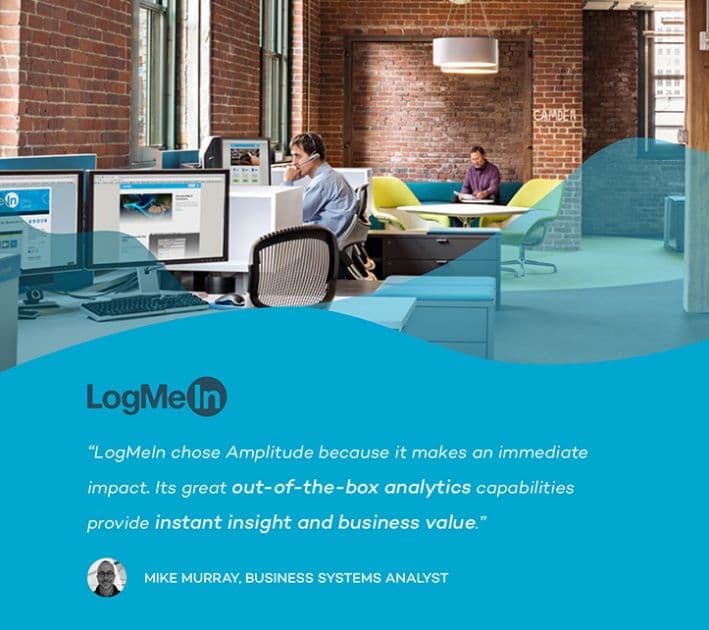4 Things Data Literate Companies Do Well
When we learn to read, we learn the letters of the alphabet and their sounds before making our first attempts to sound out full words. Eventually, these words string together to become sentences, and it’s at this point that the story behind the words becomes articulate. The process of becoming data literate isn’t that different. You start by learning data points and the meaning behind each one before turning to the metrics they support. These metrics, much like individual words, don’t tell you much until to start to string them together to expose the story behind the data. Therein lies the essence of data literacy: having the ability to extract meaning from data.
Data literacy is vital to your business. It helps run experiments and make critical decisions. We looked at four of the companies (whose efforts with data we most admire) to understand how they promote data literacy inside their organizations.
They make data self-service
When it comes to making decisions that re-enforce your approach to market opportunities, data is the most powerful tool you have at your disposal. It reveals:
- Trends in the market
- Who your users are and what they’re doing
- How well your product is performing compared to your competitors, and much more
But to get to the heart of these insights, instead of submitting a request to your data science team and waiting for an uncertain amount of time for results, set up a self-service option that allows teams to access the information they need on their own. At Square, they’ve set up their own self-serve data hub using Amplitude. Teams can access information anytime they need it. By getting into the weeds themselves, teams have a better understanding of what the data’s telling them and can make decisions quickly. Michelle Morrison, Creative Strategist at Square, explains it this way:
“Amplitude is our central source of data for validating growth experiments, learning about our customers, and prioritizing initiatives.”
At LogMeIn, they’ve increased product iteration cycles because they’ve also given teams easy and direct access to their data. As a result, their user retention doubled. To spread data literacy, provide open access to remove the shroud of mystery that surrounds it. Offering a self-service hub to teams means that:

- They’re more likely to turn to it first for answers
- They learn how to use it and how to find what they need
- They make decisions faster
- They’re more confident in their ability to use and understand the data
Ben Porterfield, co-founder and VP Engineering at Looker, sums it up nicely, “making analytics a priority means making it accessible to everyone in your company — not just technical folks.”
They integrate data into their everyday tools
Technology is moving forward at a breakneck pace, so with all the tools available to enhance workplace productivity, it makes sense to integrate them when possible. As a form of data literacy, integration encourages people to turn to data when it’s at their fingertips.
Porterfield explains, “When you embed data directly in the everyday applications where your employees perform most of their work, you’re not just encouraging usage, you’re also creating a data-driven culture.”
Change.org sees the value in this approach and has integrated Amplitude and Slack. Because so many workplaces use Slack to communicate and share ideas within teams, the integration means that they don’t have to leave Slack to check an email or open another tool to get the information they need. It’s available in one place. [Source] With what amounts to constant access to all kinds of data, people become more comfortable with it and are more likely to turn to it for help. Being so close to the data also gives them insight into how the data’s collected and what it can be used to tell them. The more information they know about the data, the better they’re able to use it.

They promote data ownership
Once teams have access to data and use it regularly for decision-making, the next step in the journey to data literacy is to dive deeper by managing their own data. For instance, when new features are launched, or new experiments run, teams can monitor progress and compile the results on their own. To promote and spread data literacy, Yellow Pages Canada gives product managers autonomy to use the data by letting them decide how they’ll use it. This includes letting them come up with the requirements they’ll use to interpret the data. If they’re tracking retention, teams decide on the length of time that signals success. It can be 30, 45, 90 days, etc., whatever makes the most sense for a particular team. [Source] Yellow Pages aims to do the same thing. Alex Métier, Senior Manager of Digital Analytics explains their perspective:

“What we’ve done is put the product owners in charge of their own data,” he continues, “Product owners are in charge of defining their own analytics requirements. If they are releasing a new feature or improvement, they are thinking about what events they want to track and the behavior of their users.”
By allowing each team within the organization to have ownership of specific parts of the data, they’re more likely to get involved in collecting and maintaining it. Métier also points out that:
“All product teams now function in parallel with [the data analytics team] to provide support, best practice and training to everyone.”
They become invested in making sure data stays relevant and useful while they take an active role in managing it.
Taking data literacy to the next level
As this article points out, “data is the lifeblood of your business.” It’s not necessary for managers to ace data analysis techniques, but if organizations take the lead in promoting the benefits of data literacy, their people will be more inclined to take time to explore their data and make sense of it. The goal here is to show employees that they can unlock powerful insights on their own. That is why it’s so important to remove the stigma of data analysis belonging exclusively to the data science team. At Square, they believe this:
“Everyone at the company should be empowered to use data to make good decisions. With such a fast-growing public company, it’s important that data is accessible to anyone who needs it, rather than having dependencies on a few people who ‘hold the keys’ to the data.”
By making access to data the norm, the more people will adopt it, use it, and trust it. With this adjustment, you are well on your way to building a data-minded culture. It starts now.

Cara Harshman
Former Managing Editor, Amplitude
Cara was formerly the Managing Editor at Amplitude. Before joining this crew of super-passionate, smart individuals, she wrote and spoke a lot about A/B testing and personalization at Optimizely. She has spoken at MozCon, CTA Conference, Opticon, and Learn Inbound.
More from Cara




